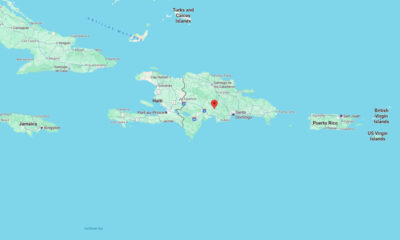Reviews
Challenges Faced by Immigrants: Ensuring Accurate Document Translations

Moving to a new country is not easy. The most prominent issue for immigrants is coming through documentation and making sure translations are accurate. Immigrants face a high volume of essential documents, from visas and work permits to leases, taxes, bank statements and more, but they need to understand them properly. Translation errors can even be small and can have serious consequences.
With globalization and immigration on the rise, the need for accurate and efficient translation services tailored to the immigrant community is becoming more important now than ever.
This article will explore the unique challenges immigrants face regarding document translation, solutions to overcoming language barriers, the consequences of miscommunication, and how technology like Rapid Translate helps with birth certificate translation to bridge divides.
Unique Challenges Immigrants Face
Immigrating to a new country presents various language and translation challenges:
1. Understanding Bureaucratic or Legal Language
Navigating visas, citizenship tests, leases, taxes, insurance paperwork and other systems, many of which involve complex bureaucratic and legal terminology, can be difficult. However, legal translation is so precise because every language has nuances. Translating something can mean the difference between an invalid grant or agreement or a precise one.
2. Translating Colloquialisms or Cultural References
For instance, culture and colloquial language, idioms, slang, and the like do not translate literally from one language to another. Even experienced translators can get confused with the kind of linguistic elements that can often be part of these complex linguistic expressions. You can have the most unexpected negative consequences if you misinterpret something like a joke or a metaphor.
3. Finding Qualified Translators
There are not all translators or translation tools that are equally skilled. Machine translation is getting better, but it doesn’t yet understand nuanced human understanding. On the other hand, professional human translators who speak specialized languages or specific terminology remain very scarce and also highly demanded. Therefore, it is difficult and expensive to find a qualified translation service.
4. Overcoming Stigma
Unfortunately, some immigrants are ashamed to ask for translation help because it is an admission of weakness. The stigma compounds other cultural or economic barriers that keep immigrants from using the available language resources. Translation services to immigrant groups must be sensitive and understanding.
Consequences of Inaccurate Translations
Mistranslations may seem harmless, but they can produce legal problems, safety issues, financial mistakes, and cultural misunderstandings between immigrants and local institutions:
1. Legal or Bureaucratic Issues
The most common way that inaccurate translations on any official paperwork can lead to visa denials, revoked work permits, lease disputes, incorrect taxes, rejected insurance claims, and more legal problems. Mistakes like these are costly and hard to fix.
2. Health and Safety Errors
Immigrants’ well being is endangered by mistranslated health and safety information, from prescriptions to product instructions to emergency alerts. Medical translations are also precise, which helps with better patient doctor dialogues.
3. Financial and Employment Struggles
Bank statements and utility bills, for example, are simple financial documents that often frustrate newcomers. Professional translators assist immigrants to avoid paying unnecessary fees, penalties and credit damages. Possibly, it can also cause damage to employment if work contracts or a professional certificate have been presented in a wrong way.
4. Community Miscommunications
Civic participation relies on well translated community outreach materials, announcements, surveys, feedback forms, and meetings. Immigrants can be linguistically and culturally boxed out of critical debate and decision time.
Solutions for More Accurate Translations
How can immigrants get reliable, accessible translations for essential paperwork? Several improving solutions aim to bridge linguistic divides:
1. Professional Translation Services
Although there are now some very sophisticated machines in wide use for translation, human translators remain the gold standard for the highest quality, most nuanced translation work. Credentials for evaluating a particular translator’s expertise are offered by expanding a professional network.
2. Automated Tools and Technology
Some translation work is automated by advances in machine translation and optical character recognition (OCR) technology. Software tools are imperfect, but they do give rough translations quickly and cheaply. Eventually, artificial intelligence may produce human-level translation.
3. Community Outreach Programs
Many of these are nonprofit and governmental groups that run outreach programs to help immigrants with documentation needs. One major resource is these programs, which grant affordable access to translators and lawyers and educational workshops around bureaucratic systems. Such social services are necessary for making welcoming communities.
4. Crowdsourced Translations
Websites enable crowdsourcing translation tasks to native speakers. Quality control is difficult, but this is efficient in leveraging linguistic diversity across large groups. However, crowdsourcing continues to be a creative way to gather more immigrant perspectives.
Key Recommendations for Improvement
While promising solutions exist, expanding and improving language access for immigrant groups remains an ongoing need. Achieving meaningful progress requires commitment and coordinated effort from all major stakeholders involved.
For Translators and Linguists
The translation industry forms the foundation for bridging linguistic divides. Some specific ways it can better serve immigrant communities include:
- Greatly expand formal training programs and professional development opportunities in higher education, especially for in-demand niche languages and subject matter specializations. These should provide affordable access and credentialing.
- Create more standardized and rigorous certification and examination processes for both translators and interpreters. This would establish clearer expertise credentials across different languages and specialties.
- Encourage technology adoption and develop robust tools leveraging machine translation, optical character recognition, translation memory databases and other innovations to improve efficiency on high-volume yet routine translation tasks. This frees up expert linguists for more nuanced work.
- Provide pro-bono or discounted translation services to vetted non-profit organizations serving disadvantaged immigrant groups. This facilitates more accessible language resources.
- Recruit broader diversity within the professional translation industry itself, employing more first and second-generation immigrants with bilingual capabilities. This brings direct cultural understanding.
For Governments and Institutions
As creators of much of the bureaucratic paperwork immigrants struggle to translate, governments and local institutions should also reassess internal policies:
- Allocate more public funding and resources specifically towards language access initiatives, multilingual community outreach programs, and expanding in-house translator staff to aid constituents.
- Standardize and consolidate forms, applications and paperwork requirements across agencies and departments. Simplify language and reduce complexity wherever feasible. This should occur alongside direct input from immigrant communities themselves.
- Incentivize local public-private partnerships on language technology projects between tech companies, universities, libraries and government offices. Open data access and staff rotations can nurture useful innovations.
- Support legislation and expanded funding for key federal translation programs such as the National Virtual Translation Center and the Census Bureau’s Language Support Services. These provide vital infrastructure used across states and municipalities.
For Immigrant Communities
Finally, immigrant communities themselves possess valuable insider perspectives. They should:
- Organize grassroots support groups, multilingual networking events and knowledge-sharing networks to mentor newer immigrants in navigating documentation hurdles. This facilitates information flows.
- Provide direct and organized multilingual feedback to government and institutional decision-makers regarding difficulties translating paperwork and communicating with staff. This gives insights for improvement.
- Take the initiative by leveraging free language tools like mobile translation apps and internet-connected computers at local community centers and libraries to assist with basic translation needs. This supplements external services.
More solutions will develop to address this systemic challenge, but only with commitment across stakeholders, and coordinated efforts leveraging technology with cultural bridges. It’s well worth the investment for communities and economies from improved inclusion.
Conclusion
Accurate document translation is important for immigrants’ rights, safety, employment, finances, healthcare access and community participation, and smooth communication is crucial. Translation challenges help solve as societies diversify, empower newcomers, and bridge divides. To progress, updated policies and technologies coupled with higher cultural responsiveness are needed. As immigrants, institutions, and linguists collaborate to develop more solutions to this complex but essential need, more will be done.

-

 World6 days ago
World6 days agoCargo plane plunges into sea at Hong Kong airport; 2 killed
-

 Business1 week ago
Business1 week agoYouTube restores service after widespread global outage
-

 US News19 hours ago
US News19 hours agoUnwarned tornado suspected in Fort Worth as storms cause damage and power outages
-

 Health6 days ago
Health6 days agoMexico reports new human case of H5 bird flu
-

 Legal5 days ago
Legal5 days agoMan armed with AR-15 arrested after threats to ‘shoot up’ Atlanta airport
-

 World5 days ago
World5 days agoMagnitude 5.0 earthquake rattles Dominican Republic
-

 World1 week ago
World1 week agoEstonia permanently closes road through Russian territory
-

 World1 week ago
World1 week agoU.S. Special Operations helicopters spotted near Venezuela



